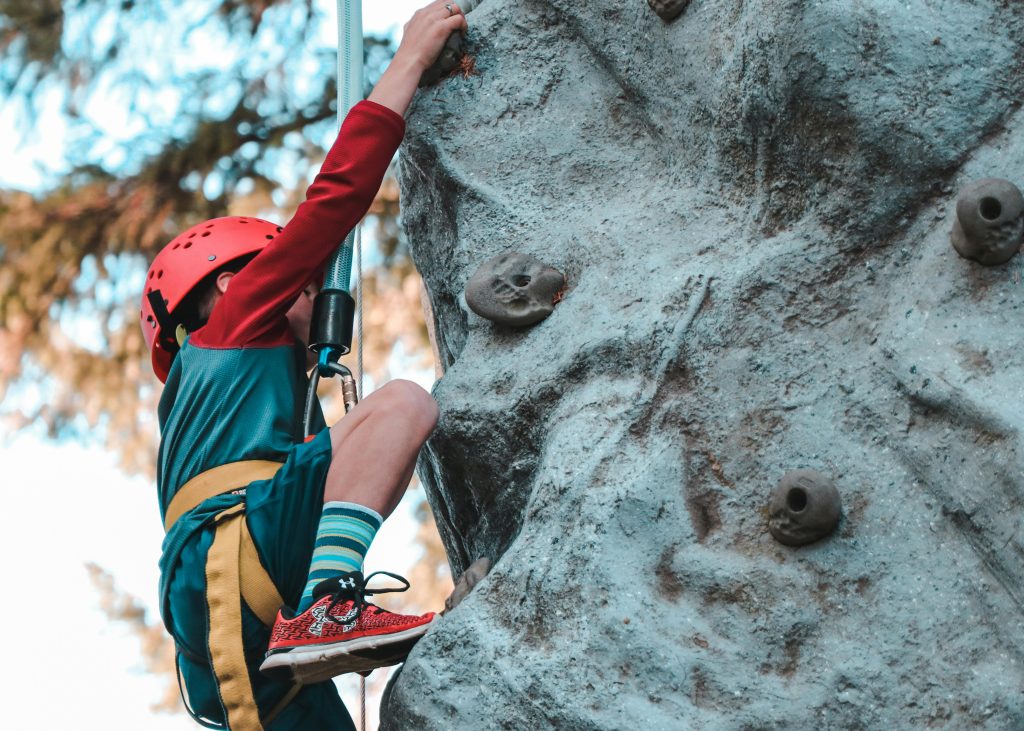
Growing up disabled, my childhood was shaped by the medical model and constant reminders of what my body couldn’t do.
At 17, I discovered the social model of disability and tried adventure sports for the first time—two moments that completely shifted my outlook.
Rock climbing was my starting point. Instead of focusing on my limitations, I had to work out how to make my body work for me—through adaptations or finding another route. Many times, I’ve been stuck on a wall, convinced I couldn’t go further, but managing even an extra inch opened up new possibilities. That mindset carried into daily life and was a catalyst for improved mental health.
My body may move differently, but it can still take me to the top of the wall in its own way. The climbing community has also played a big role, welcoming different ways of climbing and celebrating effort as much as achievement.
I’ve since tried snow-skiing, water-skiing, and even a skydive. Each of these required extensive research, travel, and planning to access the very limited opportunities available. That’s why I value climbing so much now: with the support of my PA belaying, I can turn up to most walls and climb alongside everyone else. Outdoor climbing and other sports I love remain harder to access due to the few and far between options, making them more of a rare treat than a regular activity.
Since working with Disability Rights UK (DR UK), I’ve seen more clearly the barriers Disabled people face long before they reach a venue—the lack of access, the fear of not being welcome, or of being judged.
These challenges are compounded by a social care and benefits system that often treats fitness either as proof you “don’t need support” or as a disposable luxury in times of budget cuts. Having the backing of large DPOs like DR UK makes it feel safer to push back against this, and to keep making the case that fitness should be for everyone.